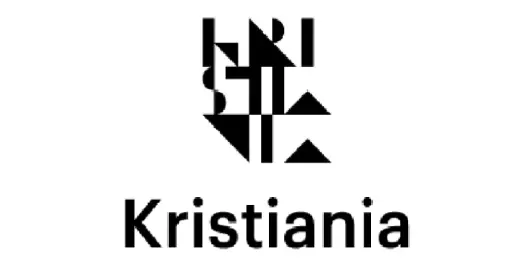Ledig stilling på Universitetet i Oslo
Blindern og Urbygningen (Foto: Wikimedia og Colourbox)
PhD Research Fellow in “Designing future zero carbon and socially inclusive energy systems”
Deadline: 29.02.2020
Job description
Universitetet i Oslo
The University of Oslo is Norway’s oldest and highest rated institution of research and education with 28 000 students and 7000 employees. Its broad range of academic disciplines and internationally esteemed research communities make UiO an important contributor to society.
The Department of Technology Systems (ITS) is a newly established department at the Faculty of Mathematics and Natural Sciences at the University of Oslo. ITS has taken over the activities at UNIK from January 2017. The Institute is located in the Kjeller Research Park, which is one of the largest research and development centers in Norway.
ITS collaborates with the research institutes at Kjeller, and with industry, while it is also tightly integrated with complementary activities at UiO in Oslo. The department has two sections: section for energy systems and section for autonomous systems and sensor technologies. An important goal of ITS is to provide wider opportunities at UiO within applied technologies.
Position as PhD Research Fellow in “Designing future zero carbon and socially inclusive energy systems” available at the Department of Technology Systems- ITS, in collaboration with Include – A research centre for socially inclusive energy transition hosted by the UiO Centre for Development and the Environment (SUM).
The purpose of the fellowship is research training leading to the successful completion of a PhD degree. Preferred starting date 15.08.2020. Starting date no later than 01.10.2020.
The fellowship period is up to 4 years, with 3 years devoted to research education. The position entails a compulsory work load of up to 25% that may consist of teaching, supervision duties, and research assistance.
No one can be appointed for more than one PhD Research Fellowship period at the University of Oslo.
More about the position
Energy system models are often used to map out and explore how to transition to zero carbon energy systems. These models include high levels of techno-economic detail and can help guide policy makers and planners in deciding which technologies to support. However, they usually lack a representation of social factors that will actually shape the energy transition. For example, different types of consumers (e.g. socio-economic groups, gender, types of dwelling, geographical differences) may use energy in different ways, and have varying capacity to adopt new technologies and respond to measures for flexible use. The lack of knowledge about social differentiation weakens the knowledge-base on which policies and measures are made, making them become less efficient than they could have been. A similar negative effect on efficiency will result if policies and design of measures (e.g. wind power) do not have public acceptance. Finally, policies and measures may affect (e.g. harm or benefit) different groups in different ways, potentially creating more social injustice.
Factoring in aspects of energy justice, social inclusion and social acceptance in energy system models may lead to the design of solutions that are cost-optimal as well as socially inclusive. Given the pressing nature of global climate change it is paramount to understand how social factors affect increasing electrification, interconnection and deployment of vital supply and demand side solutions to assess how to transition to a net zero energy system.
The PhD will have primary affiliation with the discipline of energy systems modelling (matnat/ITS related), and also work interdisciplinary, drawing on social science knowledge to suggest what kind of indicators, assumptions and storylines could be added in existing models to enhance a more socially attuned way of modeling. Topics of focus can be the current shifts in Norway towards increased demand flexibility, electric heating, uptake of EVs, more decentralized solutions and/or Norway’s role in an interconnected European energy system.
The PhD may provide answers to some of the following research questions (indicative, will be elaborated together with the candidate):
- To what extent, how and why do existing types of energy system models account for and integrate social factors?
- How may social factors be operationalized in energy system models so as to enhance the efficiency of system, understand drivers/barriers to suggested/ongoing new designs and measures, and prevent negative social implications? What are the implications in terms of required changes in the energy system design?
- How may social acceptance of renewable technologies and infrastructure (e.g. transmission grid) be represented in energy system models while keeping attention to three tenets of energy justice: distributional (who benefits/loses), procedural (who decides) and recognition justice (e.g. who bears responsibility and who are recognized as legitimate stakeholders during planning processes, implementation etc)?
- How may attention to energy justice in modelling inform the design of a socially inclusive future European energy system?
The PhD student will be located in the Energy Systems Section at ITS and collaborate with Include – a research centre for socially inclusive energy transition. The goal of INCLUDE is to develop knowledge-based solutions that can facilitate a just and socially inclusive low-carbon energy transition.
Qualification requirements
The Faculty of Mathematics and Natural Sciences has a strategic ambition to be among Europe’s leading communities for research, education and innovation. Candidates for these fellowships will be selected in accordance with this, and expected to be in the upper segment of their class with respect to academic credentials.
Required qualifications:
- Master’s degree or equivalent in Environmental Science and Engineering, Engineering, Physics, Mathematics, Computer Science, Economics, Social sciences (with a quantitative focus) or equivalent. Candidates without a completed Master’s degree have until 30 June 2020 to complete and document the final exam.
- Experience in modelling or other quantitative methods
- Foreign completed degree (M.Sc.-level) corresponding to a minimum of four years in the Norwegian educational system
Desired qualifications:
- Background/experience in social science or qualitative methods
- Background in energy
Grade requirements:
The norm is as follows:
- the average grade point for courses included in the Bachelor’s degree must be C or better in the Norwegian educational system
- the average grade point for courses included in the Master’s degree must be B or better in the Norwegian educational system
- the Master’s thesis must have the grade B or better in the Norwegian educational system
- Fluent oral and written communication skills in English
- English requirements for applicants from outside of EU/ EEA countries
The purpose of the fellowship is research training leading to the successful completion of a PhD degree.
The fellowship requires admission to the PhD programme at the Faculty of Mathematics and Natural Sciences. The application to the PhD programme must be submitted to the department no later than two months after taking up the position. For more information see:
http://www.uio.no/english/research/phd/
http://www.mn.uio.no/english/research/phd/
Personal skills
Required:
- High interest in the topic
- High motivation for interdisciplinary collaboration
- Creativeness and proactiveness
- Ability to write in a structured, clear and concise manner
Desired (selection):
- Experience in model development
- Programming skills in R and/or Python
- Experience processing and analysing data
- Experience with social science methods (qualitative/quantitative)
- Experience with GAMS or similar mathematical programming tools for quantitative modeling
- Experience with GIS applications
We offer
- Salary NOK 479 600 – 523 200 per annum depending on qualifications and seniority as PhD Research Fellow (position code 1017)
- Attractive welfare benefits and a generous pension agreement
- Vibrant international academic environment
- Career development programmes
- Oslo’s family-friendly surroundings with their rich opportunities for culture and outdoor activities
How to apply
The application must include:
- Cover letter, including a one page statement of motivation and research interests indicating why the indicated PhD topic fits their interest and background.
- CV (summarizing education, positions and academic work - scientific publications)
- Copies of the original Bachelor and Master’s degree diploma, transcripts of records and letters of recommendation
- Documentation of English proficiency
- List of publications and academic work that the applicant wishes to be considered by the evaluation committee
- Names and contact details of 2-3 references (name, relation to candidate, e-mail and telephone number)
The application with attachments must be delivered in our electronic recruiting system, please follow the link “Apply for this job”. Foreign applicants are advised to attach an explanation of their University's grading system. Please note that all documents should be in English (or a Scandinavian language).
Applicants may be called in for an interview.
Formal regulations
Please see the guidelines and regulations for appointments to Research Fellowships at the University of Oslo.
No one can be appointed for more than one PhD Research Fellowship period at the University of Oslo.
According to the Norwegian Freedom of Information Act (Offentleglova) information about the applicant may be included in the public applicant list, also in cases where the applicant has requested non-disclosure.
The University of Oslo has an agreement for all employees, aiming to secure rights to research results etc.
The University of Oslo aims to achieve a balanced gender composition in the workforce and to recruit people with ethnic minority backgrounds.
Contact information
For further information please contact:
- Marianne Zeyringer, Associate Professor, Department of Technology Systems - ITS, phone: +47 22842204, e-mail: Marianne.zeyringer@its.uio.no or
- Tanja Winther, Professor and Head of research centre Include, Centre for Development and the Environment – SUM, phone: +47-22858915, e-mail: tanja.winther@sum.uio.no
For questions regarding the recruitment system, please contact HR Adviser Therese Ringvold, phone:+47 22851606,e-mail: therese.ringvold@mn.uio.no
Apply for this job













